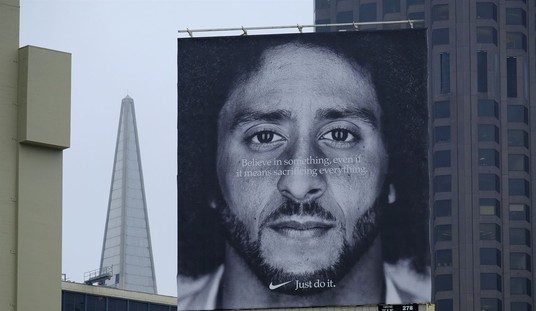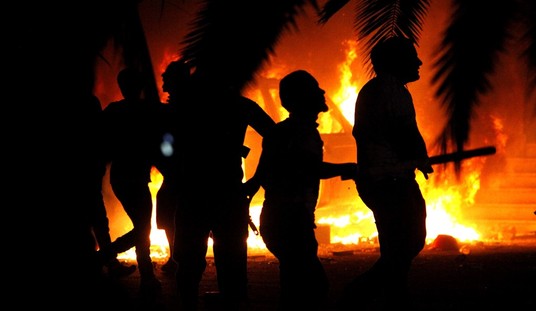The National Restaurant Association estimates that 110,000 U.S. restaurants have permanently closed their doors during the pandemic. That works out to about 17% of all restaurants in the country or about 1 out of every six. And it’s possible things will get worse as new stay-at-home orders and mandatory shutdowns, like the one in California, take effect:
Thirty-seven percent of operators said it is unlikely their restaurant will still be in business six months from now, according to a survey released Monday by the National Restaurant Association…
“What these findings make clear is that more than 500,000 restaurants of every business type—franchise, chain, and independent—are in an economic free fall,” said Sean Kennedy, executive vice president for public affairs at the association, in the letter.
The Association sent a letter to leaders of both the House and Senate asking for more help. The letter notes that, on average, the restaurants that are closing this year have been around for 16 years. These aren’t new restaurants with bad timing, many are successful local institutions:
In a letter to Congressional leaders, the association provided new survey data that show the industry is bleeding out. Sales for roughly 9 out of 10 restaurants (87%) have dropped by more than a third (36%), while costs have not dipped accordingly.
Labor costs, for instance, have risen above pre-pandemic levels for 59% of the 6,000 restaurants that were surveyed, according to the organization. Fifty-eight percent of the surveyed full-service places expect layoffs and furloughs to persist through the next three months, which health officials say will be more severe than the upswing in coronavirus infections at the start of the pandemic.
The association noted that many of the restaurant casualties to date were landmarks within their communities, with an average age of 16 years. About 1 in 6 (16%) had been open for at least 30 years, the group said. Less than half (48%) of the operators who ran those establishments intend to remain in the business.
With southern California entering a new lockdown announced last week by Gov. Newsom, the LA Times published an op-ed yesterday by a restaurant owner who complains that restaurants are being treated as scapegoats.
Before the pandemic, my husband and I managed a staff of more than 100 among our four restaurants. Now we’re down to one location, in Playa del Rey…
How did we get here? Restaurants are being treated as scapegoats — quick to be blamed for a spike in COVID-19 cases, without evidence. The most recent Los Angeles County outdoor dining shutdown, which went into effect Nov. 25, seemed like it was just another in a series of government restrictions that make zero scientific sense…
Evidence shows the latest spike in COVID cases, specifically in Los Angeles County, is a direct result of indoor gatherings. Closing outdoor dining will likely drive people to gather privately indoors, which is potentially far more dangerous than eating outdoors at restaurants that take COVID-19 precautions and social distancing extremely seriously…
With a full-service patio, and no indoor dining, we were back to averaging about 50% of our usual sales and 75% of our normal staffing for this time of the year (minus the usual holiday parties and catering). It didn’t last. With the latest elimination of outdoor seating, our revenue has fallen to about 15% of the norm, causing us to furlough nearly 40 more employees. The outdoor heaters and additional weatherproof coverings we purchased to continue operating outdoors in cool weather now sit in our bar space turned storage unit.
The author predicts that, without a bailout, 85% of independent restaurants will be wiped out by the pandemic and the related mandatory shutdowns. So does outdoor dining really contribute to the spread of the virus? Last week the San Francisco Chronicle looked at the evidence and one of the experts they spoke to found it lacking:
Restaurants have been mandated by the state to impose certain regulations and hygiene measures. They follow the general principles of harm reduction that Monica Gandhi, an infectious disease expert at UCSF, goes by: masks, distancing, ventilation and hand hygiene…
Gandhi said that during the surge, the tendency is to want people to halt all activity. “But in the balance of the long-term impact on the economy and the businesses, I think it’s fair for us as infectious disease experts and public health officials to go by data.”
When the principles of harm reduction are followed, she said, “there is no data with these four procedures that (shows) outdoor dining has driven this increased risk and surge.”
Last month Reason also put together a video on the shutdown in LA and the lack of data to support it. As you’ll see in this clip, when pressed to identify instances of outbreaks caused by outdoor dining, LA officials couldn’t come up with any. Reason’s own look at the data suggests there were only 16 outbreaks connected to restaurants and most of those involved staff working inside not the diners eating outside.








